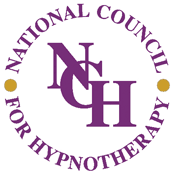At the 73rd annual international scientific assembly of the American College of Chest Physicians in 2007 results were explained of yet another significant piece of research supporting the use of hypnosis for quitting smoking.
In this case patients in hospital were the subjects.
“Hospitalized patients who smoke may be more likely to quit smoking through the use of hypnotherapy than patients using other smoking cessation methods. A study* shows that smoking patients who participated in one hypnotherapy session were more likely to be nonsmokers at 6 months compared with patients using nicotine replacement therapy (NRT) alone or patients who quit “cold turkey”.
The study also shows that patients admitted to the hospital with a cardiac diagnosis are three times more likely to quit smoking at 6 months than patients admitted with a pulmonary diagnosis. The results showed that hypnotherapy resulted in higher quit rates compared with NRT alone,” said Faysal Hasan, MD, FCCP, North Shore Medical Center, Salem, MA. “Hypnotherapy appears to be quite effective and a good modality to incorporate into a smoking cessation program after hospital discharge.” In English – hypnotherapy works!
At discharge, patients were divided into four groups based on their preferred method of smoking cessation treatment: hypnotherapy (n=14), NRT (n=19), NRT and hypnotherapy (n=18), and a group of controls who preferred to quit “cold turkey” (n=16). All patients received self-help brochures. The control group received brief counseling, but other groups received intensive counseling, free supply of NRT and/or a free hypnotherapy session within 7 days of discharge, as well as follow up telephone calls at 1, 2, 4, 8, 12, and 26 weeks after discharge. Patients receiving hypnotherapy also were taught to do self-hypnosis and were given tapes to play at the end of the session.
The results appear to be very strong: “At 26 weeks after discharge, 50 percent of patients treated with hypnotherapy alone were nonsmokers, compared with 50 percent in the NRT/hypnotherapy group, only 25 percent in the control group, and 15.78 percent in the NRT group.
Patients admitted with a cardiac diagnosis were more likely to quit smoking at 26 weeks (45.5 percent) than patients admitted with a pulmonary diagnosis (15.63 percent).
The researchers note that hospitalization is an important opportunity to intervene among patients who smoke.
“Doctors and other health personnel should use this occasion to firmly recommend smoking cessation and emphasize the impact of smoking on their disease process and hospital admission,” said Dr. Hasan. “Pulmonologists, in particular, should make a stronger case and more passionate message to their patients, and efforts should be coordinated with counseling.”
“As physicians, we are constantly reviewing new approaches for smoking cessation and revisiting existing approaches to confirm their effectiveness,” said Alvin V. Thomas, MD, FCCP, President of the American College of Chest Physicians. “The results of this study and many others confirm that using a multimodality approach to smoking cessation is optimal for success.”
To me the results of this study add further proof of how effective hypnosis and hypnosis tapes/cds and downloads can be in supporting positive changes between and after hypnotherapy.
That is why London Cognitive Hypnotherapy offer all clients the opportunity to have their own personalised Wordeweaving MP3.
With lung disease increasing and a long flu ridden winter ahead please tell your friends about this research.
For smokers I suggest 3 sessions and the regular use of mp3 stop smoking self hypnosis mp3.
http://www.sciencedaily.com/releases/2007/10/071022124741.htm





